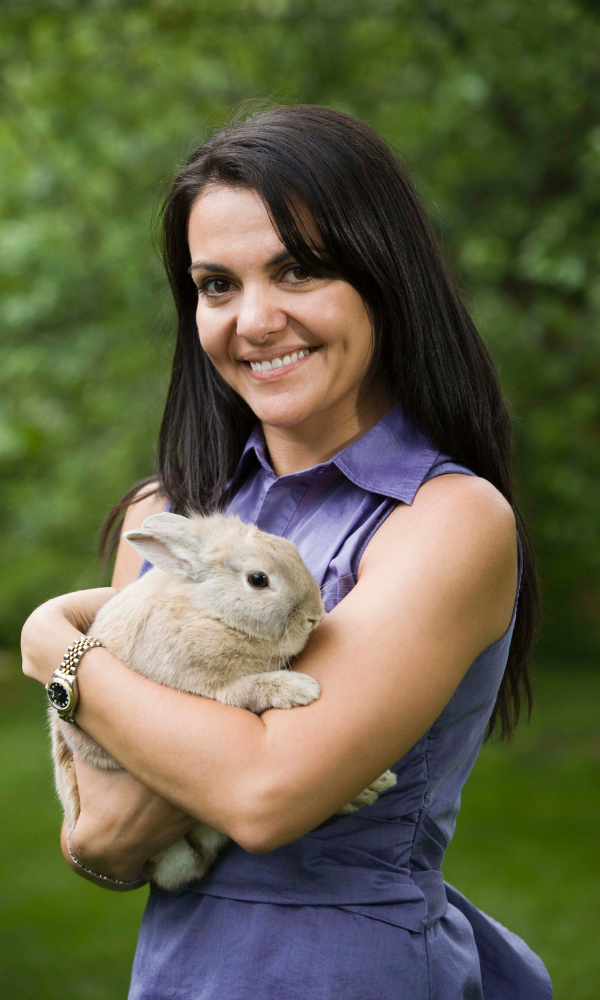If you’re looking for a new and healthy snack to give your rabbit, you might be wondering if they can eat jicama.
Unfortunately, Jicama is not recommended for rabbits because of the toxins it contains.
Jicama is a root vegetable that is native to Mexico and Central America. It is a crunchy vegetable that has a mild taste, and it is low in calories and carbohydrates. So, can rabbits eat jicama? Let’s take a look.
can rabbits eat jicama?
No! Rabbits should not eat jicama because it is a high-sugar vegetable and can cause weight gain, digestive problems, and tooth decay. Jicama is also low in nutritional value.
While rabbits may enjoy the taste of jicama, it is not good for their health. Owners should provide their rabbits with other healthy foods instead. These include fresh vegetables and fruits, hay, and pellets. If you are unsure about what to feed your rabbit, consult a veterinarian. They can help you create a diet that is best for your pet’s needs.
What is Jicama? Jicama is a sweet, crunchy vegetable that is sometimes called a “Mexican potato”. It is native to Mexico and Central America, but can now be found in grocery stores all over the world. Jicama is a good source of vitamin C and B6, as well as potassium and fiber. It is high in sugar, however, so it should only be fed sparingly to rabbits, or not at all.
Jicama Nutritional Facts.
A one-cup serving of jicama contains 90 calories, 20 grams of carbs, 2 grams of fiber, and 1 gram of protein. It also provides vitamin C, B6, potassium, and magnesium. Jicama is a high-sugar vegetable and should only be fed sparingly to rabbits. Owners should provide their rabbits with other healthy foods instead, such as fresh vegetables and fruits, hay, and pellets. If you are unsure about what to feed your rabbit, consult a veterinarian. They can help you create a diet that is best for your pet’s needs.
Side Effects of Jicama to your Bunny
Weight Gain: Jicama is a high-sugar vegetable, and too much of it can cause weight gain in rabbits. Owners should only feed their rabbits jicama in moderation, or not at all.
Digestive Problems: Jicama can also cause digestive problems in rabbits. It is low in nutritional value and can upset the stomach. If your rabbit has any digestive problems after eating jicama, consult a veterinarian.
Tooth Decay: Jicama is a crunchy vegetable and can damage teeth if eaten regularly by rabbits. Owners should avoid giving their rabbits jicama as a snack and provide them with other healthy foods instead.
Gastral Upsets: As with other high sugar vegetables, rabbits can suffer from gastral upsets after eating jicama. If your rabbit has any stomach problems after eating jicama, consult a veterinarian.
Gut Stasis: Jicama is a high-fiber vegetable, and can sometimes cause gut statis in rabbits. This is when the rabbit’s stomach becomes blocked with food, preventing it from digesting properly. If your rabbit has any digestive problems after eating jicama, consult a veterinarian.
So, as you can see, there are several reasons why rabbits should not eat jicama. It is a high-sugar vegetable that can cause weight gain, digestive problems, tooth decay, and gastral upsets. There are many other healthy foods that rabbits can eat, so there is no need to feed them jicama.
Health Benefits found in Jicama
Advances Digestion: Jicama is a high-fiber vegetable that can help to improve digestion. It contains both soluble and insoluble fiber, which work together to cleanse the digestive tract and promote regularity.
Increases Immune System: Jicama is also a good source of vitamin C, which helps to boost the immune system.
Advances Blood Circulation: The potassium in jicama helps to regulate blood pressure and improve circulation.
Advances Brain Role: Jicama is also a good source of B6, which is important for brain health. It helps to maintain cognitive function and prevent age-related memory loss.
Strengthens Bones: Jicama is a good source of potassium, which is essential for bone health. It helps to protect bones from damage and keep them strong.
Controls Blood Glucose: Jicama is a low-glycemic food, which means that it does not cause a spike in blood sugar levels. This makes it a good choice for people with diabetes or prediabetes.
Can Rabbits Eat Jicama Leaves and Skins?
No, rabbits should not eat jicama leaves and skins because they contain harmful chemicals that can be poisonous to rabbits. It contains a toxin called rotenone, which can cause liver damage, respiratory problems, and death. owners should avoid feeding their rabbits jicama in any form, as it is not good for their health. Instead, provide them with other healthy foods that are safe for rabbits to eat.
How To Feed Jicama To Rabbits?
To feed jicama to rabbits, cut it into small pieces and give them a small amount at a time. Do not give them too much, as jicama is high in sugar and can cause weight gain. If your rabbit has any digestive problems after eating jicama, consult a veterinarian.
The best way to prepare jicama is to slice it into thin strips or cut it into small cubes. You can either feed it to your rabbit whole or chop it up into small pieces. Always supervise your rabbit while they are eating jicama to make sure they do not choke on the pieces. Jicama can also be mixed with other vegetables or fruits to create a healthy snack for your rabbit. Be sure to wash all vegetables and fruits thoroughly before feeding them to your rabbit.
How Many Jicama To Feed Rabbits?
There is no specific amount of jicama that should be fed to rabbits. owners should start with a small piece and increase the amount as needed. Do not give your rabbit too much, as jicama is high in sugar and can cause weight gain.
If your rabbit is over 6 months old, they can eat approximately 1/4 cup of jicama per week.
If your rabbit is over 1 year old, they can eat approximately 1/2 cup of jicama per week.
If your rabbit is over 2 years old, they can eat approximately 3/4 cup of jicama per week.
One of the Health Issues your Rabbit could Face if Given Too Much Jicama
Coccidiosis is a parasitic infection that can affect rabbits. It is caused by a type of coccidian parasite, which can invade the intestines and cause severe damage. Symptoms of coccidiosis include diarrhea, weight loss, dehydration, and anemia.
Jicamma can cause Coccidiosis to overpower and infest intestines when consumed in high volumes. Although this Health Issue is not as common, it can turn deadly if not treated in time.
If your rabbit has been diagnosed with coccidiosis, they should not eat any jicama. Jicama is a high-sugar vegetable and can make the symptoms of coccidiosis worse.
Other Vegetables That Rabbits Cannot Eat ( Like Jicama )
There are many other vegetables that rabbits cannot eat, including cabbage, broccoli, and cauliflower. These vegetables contain harmful chemicals that can be poisonous to rabbits. It is important for owners to know which vegetables are safe for their rabbits to eat and which ones are not.
The most common toxin is a chemical called rotenone, Found in jicama leaves and skins. Rotenone can cause liver damage, respiratory problems, and death in rabbits. owners should avoid feeding their rabbits jicama in any form, as it is not good for their health. Instead, provide them with other healthy foods that are safe for rabbits to eat.
It is important for owners to be aware of the risks associated with feeding their rabbits different types of vegetables. By knowing which vegetables are safe and which ones are not, owners can help keep their rabbits healthy and happy.
Conclusion: Can rabbits eat Jicama
To conclude, rabbits can eat jicama but should only have a small amount at a time. Do not give them too much, as jicama is high in sugar and can cause weight gain.
The best way to prepare jicama is to slice it into thin strips or cut it into small cubes. You can either feed it to your rabbit whole or chop it up into small pieces. Always supervise your rabbit while they are eating jicama to make sure they do not choke on the pieces.
Jicama can also be mixed with other vegetables or fruits to create a healthy snack for your rabbit. Be sure to wash all vegetables and fruits thoroughly before feeding

Dr. Elly Cameron is a veterinarian who has always loved animals. She grew up with cats and rabbits, and knew from a young age that she wanted to help animals in whatever way she could. After completing veterinary school in New Zealand, she and her husband moved to North Carolina in 2009. There, she worked as a small animal veterinarian, seeing cats, dogs, and of course her favorite patients – rabbits! In the last few years, Dr. Cameron has been working as a locum vet while she concentrates on raising her two young daughters. She also started writing this blog to help other rabbit lovers out there.
